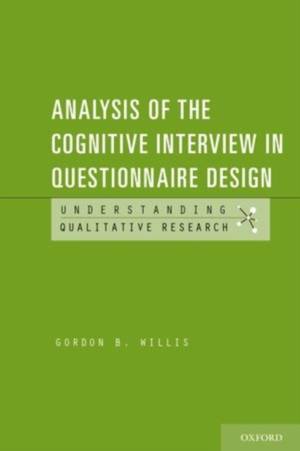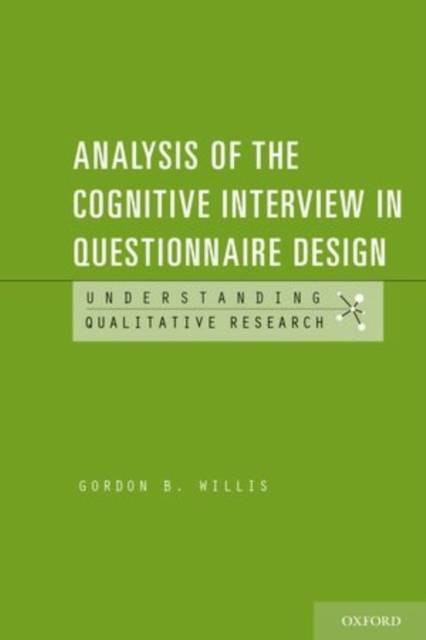
- Afhalen na 1 uur in een winkel met voorraad
- Gratis thuislevering in België vanaf € 30
- Ruim aanbod met 7 miljoen producten
- Afhalen na 1 uur in een winkel met voorraad
- Gratis thuislevering in België vanaf € 30
- Ruim aanbod met 7 miljoen producten
Zoeken
Omschrijving
Cognitive interviewing, based on the self-report methods of Ericsson and Simon, is a key form of qualitative research that has developed over the past thirty years. The primary objective of cognitive interviewing, also known as cognitive testing, is to understand the cognitive mechanisms underlying the survey-response process. An equally important aim is contributing to the development of best practices for writing survey questions that are well understood and that produce low levels of response error. In particular, an important applied objective is the evaluation of a particular set of questions, items, or other materials under development by questionnaire designers, to determine means for rewording, reordering, or reconceptualizing. Hence, as well as providing an empirical, psychologically oriented framework for the general study of questionnaire design, cognitive interviewing has been adopted as a 'production' mechanism for the improvement of a wide variety of survey questions, whether factual, behavioral, or attitudinal in nature.
Specificaties
Betrokkenen
- Auteur(s):
- Uitgeverij:
Inhoud
- Aantal bladzijden:
- 274
- Taal:
- Engels
- Reeks:
Eigenschappen
- Productcode (EAN):
- 9780199957750
- Verschijningsdatum:
- 23/04/2015
- Uitvoering:
- Paperback
- Formaat:
- Trade paperback (VS)
- Afmetingen:
- 135 mm x 206 mm
- Gewicht:
- 317 g

Alleen bij Standaard Boekhandel
+ 164 punten op je klantenkaart van Standaard Boekhandel
Beoordelingen
We publiceren alleen reviews die voldoen aan de voorwaarden voor reviews. Bekijk onze voorwaarden voor reviews.







